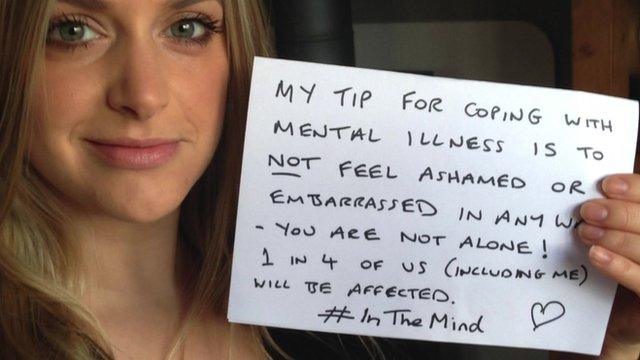'You are not alone': How to cope with mental illness
- Published
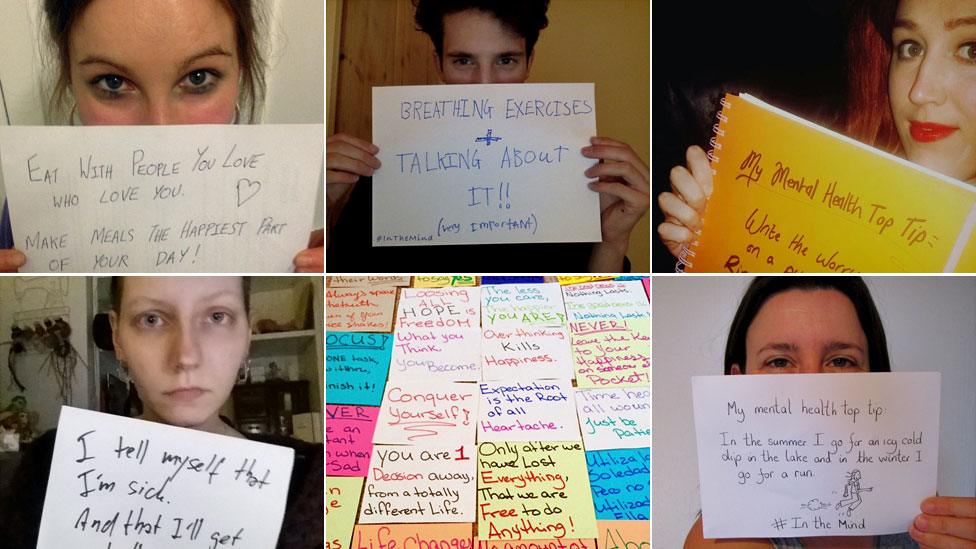
As part of the BBC's In The Mind season, we have been asking how you cope with mental illness.
From listening to music and running, to colouring a picture and spending time with your family, you have sent us your photos and messages of your personal stories and how you manage day-to-day.

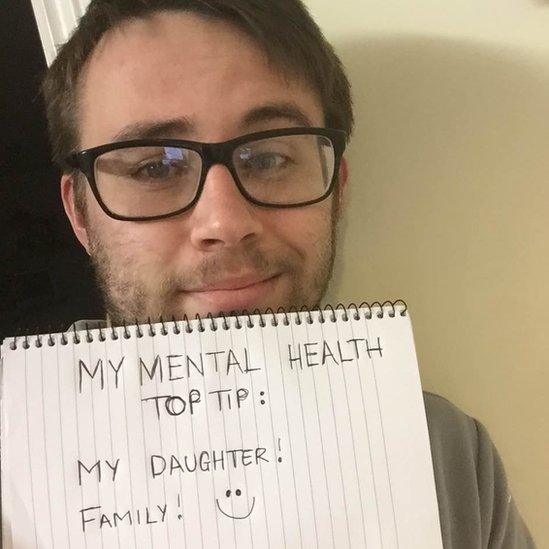
Josh Hammersley: I felt suicidal but having my first born made me see the light.
To bring more awareness of mental health issues, Josh recorded a video on YouTube, external about suffering from depression.
"I wouldn't wish depression on my worst enemy," he says.
"You shouldn't be ashamed to say you have depression - you are not alone."

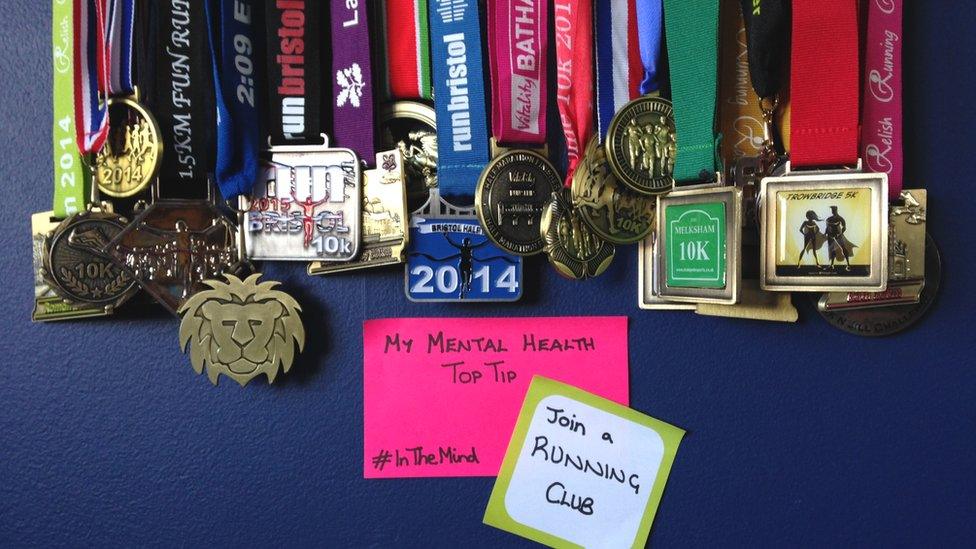
Running has helped Carolyn Trippick to improve her mental health.
"Joining a running club encourages social interaction and builds a support network," says Carolyn.
But she gives a tongue-in-cheek warning. "Running can be addictive," says the 36-year-old.
"Competitiveness can take hold and once you enter races, you are at risk of developing an awesome sense of fun, and a sense of achievement, as well as building camaraderie, determination and resilience."

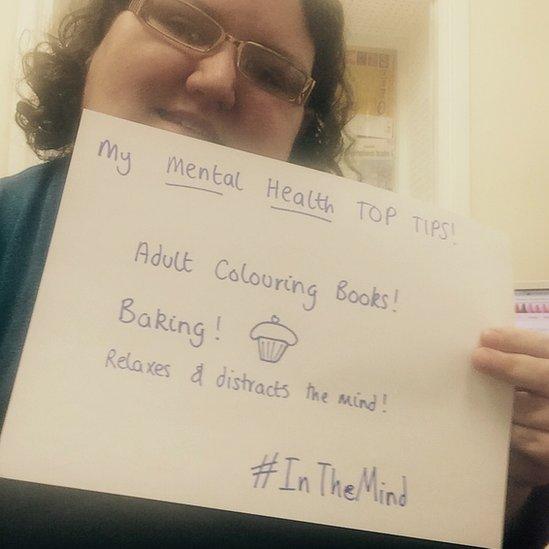
I have suffered with mental health issues since I was 16, says 28-year-old Megan Crocker.
Megan says her illness is "debilitating".
"There are good and bad periods. It's like there is someone living in your brain constantly telling you how useless you are.
"Colouring and baking have helped me to relax and distract my brain from negative thoughts."

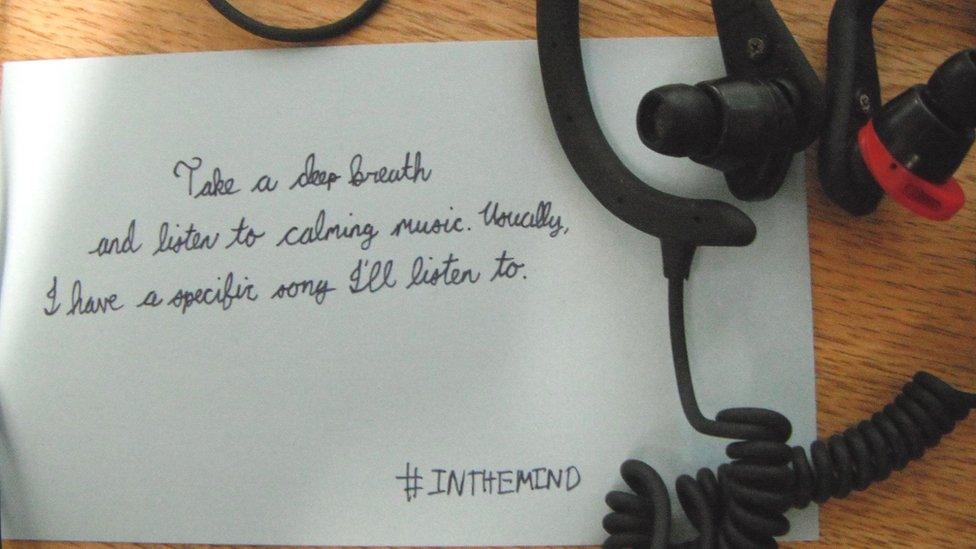
I have anxiety and depression, so I listen to music and take deep breaths, says Angusina Campbell.

Jennifer Rowland, Crewe: "Make sure you eat at least two meals a day - meals, not junk food. Look out of the window, got outside, remember the world outside your own head. Talk to your friends. Don't tell just one person everything, tell a few people some things that are on your mind. Smile at a stranger."

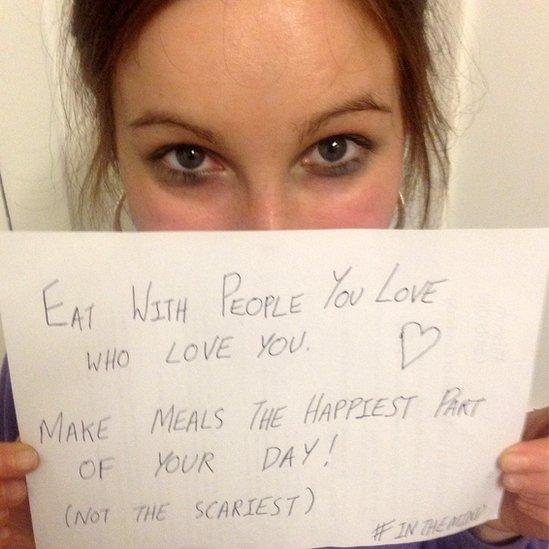
Amber Moss recommends having meals with loved ones.

Laura, London: "At the end of each day, write a list of positive things from the day. Maybe something you've enjoyed, a compliment, something you achieved, or something beautiful you saw. Try to think of three, or more if you can. I write them on my phone - I've downloaded a diary app that reminds me."

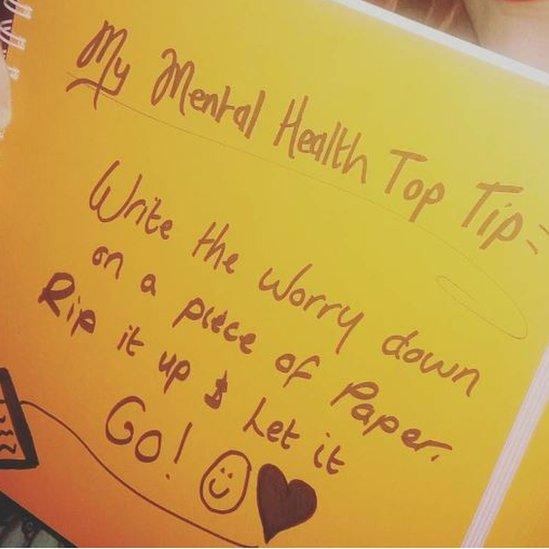
Jessica Morgan Price: I am a cancer/sepsis survivor. I suffer with anxiety and PTSD. My tip works a treat, especially on the bad days.

Gemma Wilson, Tameside: "I keep a box that holds positive memories like a favourite perfume or body spray, a song or album, maybe even a good book/DVD that helps escape from reality for a little while. The slightest break gives you time to try and readjust enough to maybe think a little clearer."


George Hodgson says he suffered from crippling anxiety.
Nineteen-year-old George Hodgson describes how his anxiety affected him.
"I couldn't leave my bedroom let alone the house, until I became so mentally ill, I had to go and see a specialist.
"Eventually after months and months of seeing a psychiatrist and a cognitive behavioural therapist, there was light at the end of the tunnel and I started my recovery.
"During this period I had the idea of Maison de Choup, external, my fashion label born out of my anxiety."

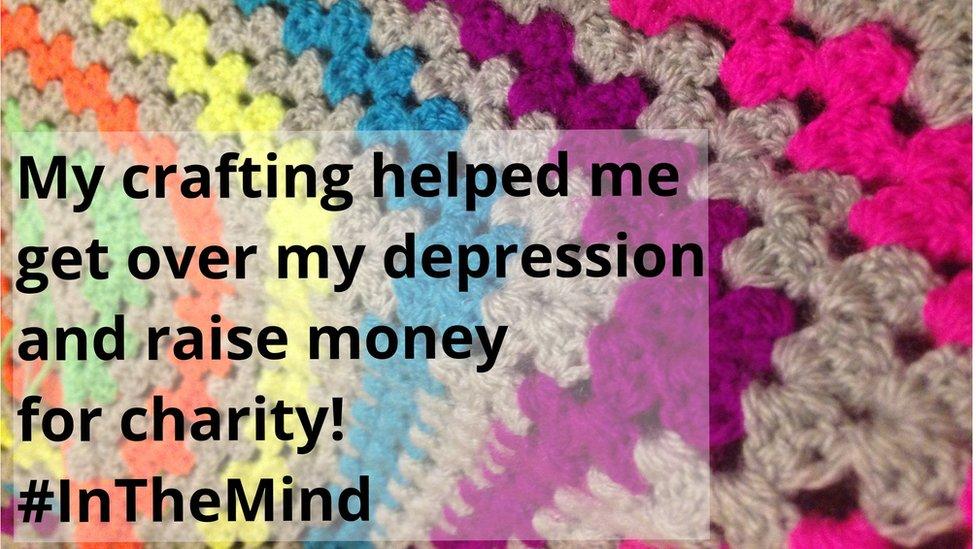
Isla MacLean, 24 says: Crafting helped keep my mind busy and allowed me to focus on something other than my world falling apart.

Rachel, Sandy, Bedfordshire: "Break things down into small, manageable chunks, with a reward for yourself for each thing you complete, even if that is just getting out of bed."

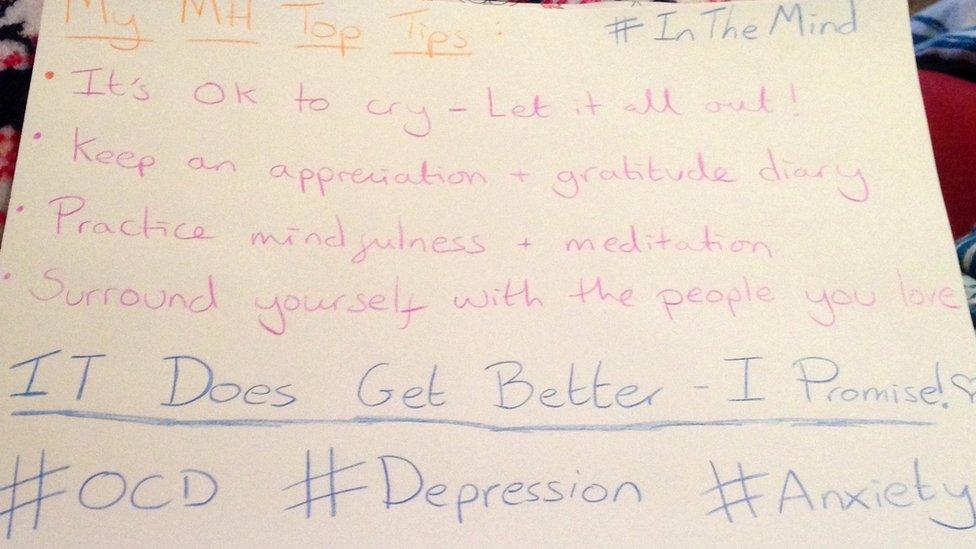
Charlotte Denness has a number of tips on coping with mental illness.
"I struggle with depression, anxiety, post-traumatic stress disorder and obsessive compulsive disorder," says Charlotte.
"I am by no means cured but these tips all help me to manage my problems and take control of my life so I can be truly happy; which, right now, I am."

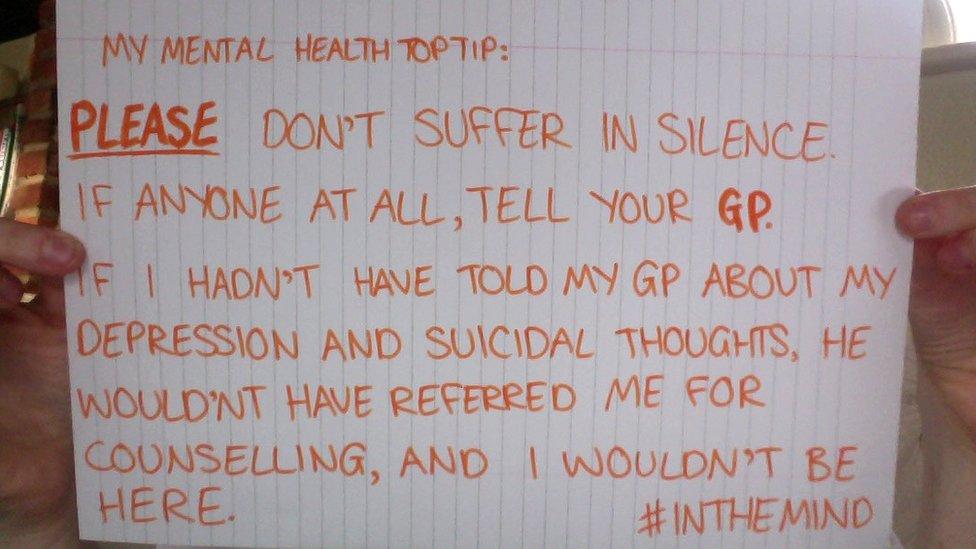
Singer-songwriter Abigail Blake, aged 21, says: "I have been struggling on and off with severe depression and anxiety for the last several years.
"Music has helped me stay positive, calm, and ultimately alive." She wrote Epiphany, external, a song about her experiences with depression.

Asha, London: "It is not about forcing happiness it's about not letting sadness win."

Compiled by Andree Massiah

In The Mind - a series exploring mental health issues

Explained: What is mental health and where can I go for help?
Mood assessment: Could I be depressed?
In The Mind:, external BBC News special report (or follow "Mental health" tag in the BBC News app)
- Published17 February 2016
